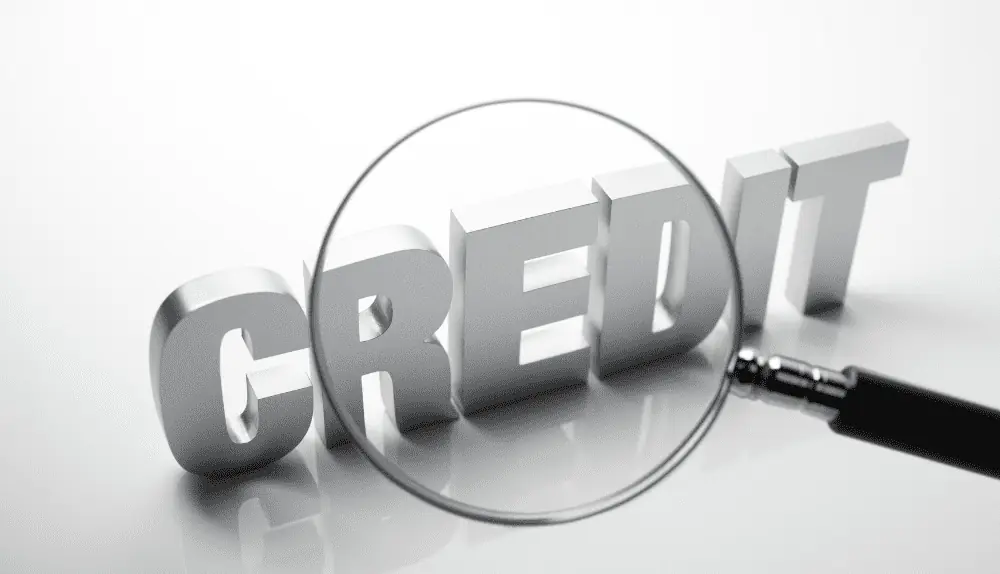If you’ve applied for a loan or some other form of financing, you’ve probably heard the term credit inquiry or pull. People often get uncomfortable around credit checks because they don’t fully understand how they work. There are two kinds of credit inquiries: hard and soft. But how exactly do these inquiries work, and what are their differences? Read on to find Hard Credit Inquiry vs. Soft Credit Inquiry.
This article will discuss the definition of “credit inquiry,” the differences between a soft and a hard credit pull, and why and how hard credit inquiries affect your credit.
What Is a Credit Inquiry?
Credit inquiries refer to the act of someone requesting and receiving your credit information. A financial institution/party sends a question to one of the three credit bureaus as the first step in the process. The next step is for the credit bureau to share your credit report if the company or individual making the request has a legal right to do so. Credit freezes are the only exceptions here.

You have the right to know who has accessed your credit information under federal law. Your credit file must contain a record of each credit inquiry (also known as a credit check or a credit pull). Generally, credit inquiries remain on your credit report for two years.
Credit inquiries are divided into two types: soft checks and hard checks.
What Is Soft Credit Inquiry?
Soft credit checks are sometimes referred to as soft pulls or soft inquiries. Soft credit checks can take place at any time without your approval. Only consumer disclosures, or credit reports you request, show soft inquiries.
You may receive an offer from a financial institution for a pre-qualified credit card because the lender reviewed your credit history and determined you were a strong candidate for their lending program.
Soft inquiries include the following types of credit checks:
- Credit checks for individuals
- pre-approved Credit offers
- Account reviews by current creditors
- Insurance applications
- Application for employment
Even if a soft credit check shows up in your report, it won’t affect your credit score.
What Is A Hard Credit Inquiry?
Hard inquiries or hard credit checks are processed when you apply for new financing. Also called a hard pull, this will impact your credit score. A hard credit check occurs when you provide permission for an institution to review your credit. This review allows a lender to check your credit, determine your worthiness, and assign terms and interest rates based on your credit history and current credit accounts.
Hard inquiries include the following types of credit checks:
- Applications for loans (mortgage, auto, student, personal, etc.)
- Applications for new utilities
- Applications for credit cards
- Credit line applications
- Credit limit increase requests
- Applications for apartment rentals
- Collection agency skip tracing
Even though your credit score might drop after a hard inquiry, it usually recovers after a few months. An inquiry will lower your FICO score between five and ten points. It can take up to two years for a hard inquiry to disappear from your credit report after your score has rebounded.
A high number of hard inquiries on your credit report can indicate that you are a credit risk, which could lead to credit denial in the future.
However, if you apply for multiple loans for the same type within 14 to 30 days or shop around for rates, you usually count those inquiries as one. When buying a home, multiple applications for pre-approval tend to count as one hard inquiry. This is known as rate shopping.
The Impact of Credit Inquiries

A borrower’s credit score may decline when the financial institution pulls their credit report. There’s a simple reason for this. According to statistics, consumers who apply for new credit are riskier than those who do not.
FICO estimates that consumers with five or more credit inquiries in the past 12 months are six times more likely to fall behind on a credit obligation by 90+ days. The chances of filing for bankruptcy are eight times higher for people with six or more credit inquiries.
Credit scores help lenders, and other companies predict your risk of doing business with them. Consumers’ FICO and VantageScore credit scores indicate their likelihood of defaulting (becoming 90+ days late on a credit obligation) in the next 24 months.
In some cases, your score could decline if your credit report shows you’re more likely to default on a credit obligation. It would be best to avoid hard credit inquiries and other actions that increase your credit risk, such as using your credit card a lot or making late payments.
How Much Does a Hard Inquiry Affect Your Score?
According to FICO, one new inquiry typically lowers a credit score by less than five points. As the inquiry ages, its impact on your score will diminish until it no longer matters. The entire process of credit scoring is, of course, a bit more complex.
Hard inquiries don’t affect your credit score nearly as much as other factors. According to FICO scoring models, credit inquiries account for 10% of your credit score. As a comparison, your payment history accounts for 35% of your FICO Score.
VantageScore’s credit scoring models consider hard inquiries less critical. Hard inquiries only contribute 5% to VantageScore’s calculations.
There is no specific point value for individual credit inquiries. You cannot say, for example, that a new hard inquiry will lower your credit score five points. Credit scores don’t work that way.
Credit scoring models consider the number and age of inquiries on your credit report. You should also pay attention to the rest of your credit information. People with little credit history may be affected more by a new hard inquiry than those with older, more established credit histories.
How Long Do Credit Inquiries Last?
In most cases, credit reporting is voluntary. Credit card issuers, for example, don’t have a legal obligation to share credit information with credit bureaus. Furthermore, A credit bureau is not required to include credit card accounts on a credit report either. Information about accounts is reported and included in credit reports because it helps companies increase their profits.
But inquiries don’t work this way. Credit bureaus are required by law to disclose when they share your credit information with others. Most inquiries must remain on your credit report for at least 12 months under the Fair Credit Reporting Act (FCRA). Generally, employment inquiries will remain on your credit report for 24 months.
Inquiries on your credit report are typically kept for two years by credit reporting agencies. FICO, however, only considers hard inquiries made within the last year. If a hard inquiry is older than a year, it will not affect your FICO score.
When it comes to inquiries, VantageScore is once again more lenient. In most cases, your VantageScore credit score will rebound within three to four months after a hard inquiry lowers it (provided that your credit report does not contain any new negative information).
Rate Shopping
Normally, hard inquiries affect your credit score negatively. Furthermore, continuous credit applications are usually seen as a sign of high risk and could indicate financial distress. Shopping for rates, however, is an exception to this.
Searching for the best interest rate before applying for a new loan demonstrates financial responsibility, not higher risk. FICO and VantageScore treat rate shopping differently in their credit scoring models because it does not indicate a greater risk of default.
Deduplication is the term used to describe this particular logic. You can see how it works here:
- VantageScore considers all inquiries made within a 14-day window as a single inquiry, no matter the type of application.
- Inquiries about student loans, auto loans, and mortgages that occur within a 45-day window are considered one hard inquiry by FICO. However, some lenders use older FICO scoring models with only a 14-day window.
Unauthorized Inquiries
It’s a good idea to review your credit reports regularly. By checking your credit report, you can find errors in the report that might lower your credit scores or fraud. AnnualCreditReport.com offers a free copy of all three credit reports every 12 months under the Fair Credit Reporting Act.
You should look for errors and fraudulent information when reviewing your credit report. Searching for credit inquiries made without your permission is part of this process. If you uncover unauthorized credit inquiries, you may dispute them with the credit bureaus. You may find this guide from the Federal Trade Commission helpful.
Receiving inquiries you don’t recognize might indicate a more significant issue than a simple error in your credit report. A credit inquiry that you didn’t authorize could indicate identity theft. Examine your credit report for any other indications of fraud if you discover suspicious inquiries on a credit report. You can report identity theft and recover if you’ve been the victim of this crime by visiting IdentityTheft.gov.
Final Thoughts
Credit inquiries are a normal part of the application process for credit lines, loans, and even jobs. There’s not much you can do about a hard credit pull affecting your credit if you need to apply for a new credit line or loan but understanding how it works can help you be more careful about it. Hard inquiries will disappear with time, and you can take advantage of the rate shopping exception to check the rates for different providers without fear of multiple hard inquiries.

